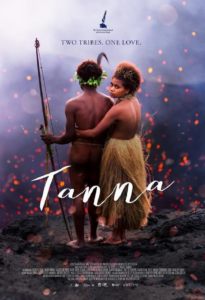July 29th, 2017 — 4:44am
***
Fill the Void-nf
By sheer coincidence, after we had just previewed Menashe on this blog, the next film in our Netflix queue is the 2013 Israeli film about Orthodox Hasidic Jews (in Hebrew with subtitles).
Fill the Void examines the orthodox tradition of arranged marriages. The movie centers around 18-year-old Shira (Hadas Yaron) after Esther (Renana Raz) her older sister tragically dies in childbirth. Esther is survived by her newborn son and her grieving husband Yochay (Yiftach Klein) as well as her parents and sister. Shira is now of marriageable age and is considering possible candidates provided by the matchmaker and of course is being considered by eligible men. Yochay is being “offered†a woman who might move to Belgium if he were to marry her. The idea of losing touch with their newborn grandson is horrifying to the grieving grandparents which makes them want Shira to consider Yochay.
This film is a sensitive and penetrating view of the orthodox community steeped in this tradition of prayer and customs. It also suggests the complicated perhaps guilt-ridden feelings that Shira might have as she considers becoming a substitute wife for her handsome brother-in-law to whom she is ambivalently drawn to as he is to her.
Director/writer Rama Burshtein knows well the community about which this film revolves. This allows the storyline to be developed in some depth. The setting, costuming, covered heads, flowing beards, attractive head coverings, chanting, rocking and singing prayers and the conflicted theme of this storyline are all very genuine and realistic. The photography and lighting are done particularly well. This movie does fill a void in depicting the subject matter in this setting that most people are unfamiliar. (2013)
Comment » | 3 Stars, Drama, Foreign, Romance
February 24th, 2017 — 11:17pm
****
Tanna
This movie is Australia’s entry in the Oscar race for best foreign film of the year. It made the final cut for the top five and the winner will be chosen in four days from when this is being written. It is a very well done film that would stand on its own well deserved merits. However, in a post screening discussion after we met the team that made the film and learned about the unusual manner in which they embarked on this project, we especially appreciate it as a valuable gem.
Tanna is a small island in the South Pacific, basically untainted by modern civilization. There is no electricity. The people wear their native garb made up of straw and other vegetation. They usually are bare-breasted with the men wearing “penis sheathsâ€. They speak their native language and are illiterate. There are several tribes on the island and they have often interacted with each other, sometimes not always in a friendly manner.
The filmmakers knew of the existence of these people and made contact with one native, JJ Nako, who must have spent time off the island as he uniquely spoke English quite well. The film crew spent four months on the island bringing solar energy for their equipment. Initially, they did not have any script and explored the lifestyle and customs of the people. They then learned about one event that occurred 30 years previously when a young woman was expected to marry a man from a nearby tribe in order to make peace about some conflicts between them. She, however, had found a young man in her own tribe that she loved and they did not want to carry out the orders of their elders and the tribe leader. The filmmakers decided that this story would be the plot of the movie and they enlisted the entire tribe to participate in this film with several members having major roles in the story. The participants spoke their native language and English subtitles were provided in the final product. The indigenous people were interested in showing the outside world about their tribe and the history. The story turned out to be another version of Romeo and Juliet or West Side Story, with all the poignancy and drama of those classics. The incident took place 30 years previously and actually led to the change in tribal customs. So now, while still living in a very traditional manner, these people do have “love marriages†because of what happened in this event.
The native music and songs are part of the film as well as an underlying appropriate score by Antony Partos. There is a very large, beautiful, bubbling volcano which is part of the makeup of the island and was used magnificently by cinematographer Bentley Dean. Credit of course goes to the directors Bentley Dean and Martin Butler who crafted and directed this unusual film.
The filmmakers obviously made a wonderful connection with the inhabitants of this island. The natives and their performance and participation in this movie demonstrated that their love of history and culture must be very intense as their acting was very believable and realistic. Whether or not it wins an Oscar for best foreign film, this movie deserves to be seen. (2017)
Comment » | 4 Stars, Documentary, Drama, Foreign





